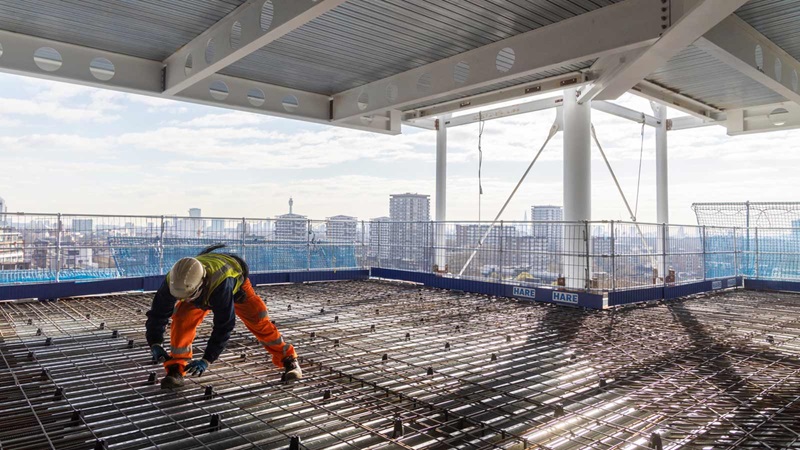The value of supply chain resilience
Without a deep and diverse supply chain, the construction industry and its eco-system falls apart. The supply chain’s centrality to success, makes the recent collapses of industry stalwarts so worrying. Stories about contractors failing to pay and adopting aggressive tactics are particularly disturbing. Not only do these actions damage subcontractors, but they are also shortsighted and could have far wider implications that impact on the capacity and capability of the construction industry through a domino effect, which further undermine UK growth and productivity.
Now is not an easy time for construction businesses. Insolvencies are at record highs with some big names joining a lengthy list of recently collapsed firms. For some time at Mace, we have been advising about the risk of supply chain insolvencies, unfortunately, this is something we are seeing more evidence of, and industry needs to rally together quickly to avoid significant damage to the wider economy. That means, in addition to dealing with the fall-out from key suppliers going insolvent, supporting clients and projects where there is growing concern, aiming to nip in the bud emerging risks.
Recurring themes from firms who have gone under include Brexit, Covid, supply chain problems, rampant inflation, and the availability of cash. None of this should come as a surprise, but the steady stream of challenges has left firms with depleted reserves and the supply chain as fragile as it has ever been.
In addition, problems around credit are a growing risk, with a recent Bank of England report also highlighting how conditions, especially for smaller firms, are only tightening further. Current interest rates and long-term challenges around margins in the construction sector mean that it is difficult to build an investment case when money will return more interest left in the bank rather than invested in a growing business.
Contractors failing has significant ripple effects. Reports suggest that just two recent high profile insolvencies resulted in a combined £150 million unpaid to subcontractors. It is easy to see how a larger company going under can put additional stresses on many others.
Eventually, things will improve, but when they do a smaller supply chain will add to costs. Michael J Lonsdale was one of a handful of M&E subcontractors capable of working on some of London’s largest schemes. Without it there is less competition for such work, and those remaining can charge more. The reality is that every company that fails today is one less that can bid for projects in an economic recovery.
One further issue is the potential impact on the workforce for the future, volatility and insolvencies will not help the long term image of the industry. We face severe skills shortages, and those who lose their jobs may not come back to the sector. Similarly, an industry seen as unpredictable and where jobs come and go, is not one which those leaving school are likely to view as attractive.
It is unacceptable to deliberately act in a harmful fashion, pushing smaller firms under, in order to unfairly benefit oneself. Both the CLC and Build UK are clear about the importance of fair payment terms, and an overhaul of the retention clauses in contracts such as the JCT. If these improvements took places, it is estimated that over £5bn could be released immediately into the industry, which would improve cash flow positions and reduce the risk of insolvencies.
Mace is in a unique position of being both a contractor and consultant, and this allows us to see arguments from all sides. If you include our Business School for the supply chain that enables us to learn from each other, collectively get better and increase certainty and predictability of delivery, we work alongside the entire construction ecosystem. Drawing on this experience, our recommendations to all those in the industry – from clients to their project teams, contractors and sub-contractors – are as follows:
- Be a knowledgeable and informed client. Invest time to understand the underlying health and resilience of the supply chain, but also to understand their challenges and opportunities.
- Consider ways to improve payment positions, such as the removal of retentions from contracts – which can be acted on immediately. Where there are contentious issues, act with a sense of urgency to close out those claims fairly.
- Place a value on contractors who have invested in their supply chain and have a more strategic approach, as opposed to project-by-project mentality.
- Understand and value the value chain – treat them fairly as they are an integral and precious part of any successful project or programme. Setting the supply chain up for success and leveraging their expertise and ideas is likely to lead to better outcomes as we seek to navigate industry challenges.
It’s clear the construction sector is in a challenging period, and we must all hold up the mirror to understand what has gone wrong and what the solutions are. The most important thing we can all do is contribute towards an environment where trust and collaboration come first. Sharing what we find and committing to change as an industry isn’t going to be easy, but it is essential.









